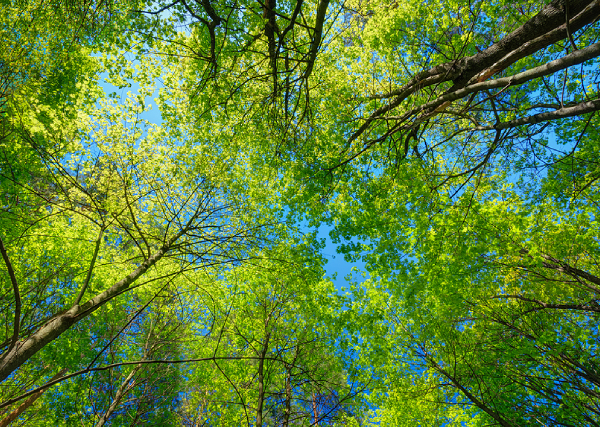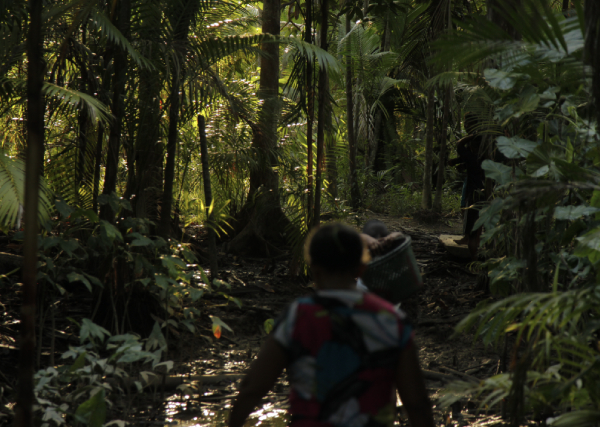The Amazon rainforest and other tropical rainforests are often referred to as the Earth’s lungs, playing a critical role in regulating the global climate, harbouring biodiversity, and sustaining countless lives. However, these invaluable ecosystems face a myriad of threats, ranging from deforestation and illegal logging to climate change and industrial development.
In this article, we’ll delve into the challenges facing the conservation of tropical rainforests, explore the relevant parties and authorities that help further the cause, and discuss how consumers can contribute to preservation efforts.
Threats to the Amazon Forest and Tropical Rainforests
1. Deforestation and Logging
Deforestation for agriculture, logging, and infrastructure development remains one of the primary threats to tropical rainforests worldwide. The Amazon, in particular, has witnessed extensive clearing for cattle ranching, soybean cultivation (which is used primarily as animal feed), and palm oil production, leading to habitat destruction, loss of biodiversity, and carbon emissions.
2. Climate Change
Climate change exacerbates the vulnerability of tropical rainforests, leading to more frequent and severe droughts, wildfires, and extreme weather events. These disturbances disrupt ecological processes, endanger species survival, and compromise the ability of rainforests to sequester carbon dioxide, worsening global warming.
3. Illegal Mining and Extraction
Illegal mining for gold, minerals, and other natural resources poses a significant threat to rainforest ecosystems, leading to habitat destruction, water pollution, and conflict with indigenous communities. Unregulated extraction activities often result in deforestation, soil degradation, and irreversible environmental damage.
4. Infrastructure Development
The construction of roads, dams, and other infrastructure projects in and around tropical rainforests facilitates access to previously inaccessible areas, leading to further deforestation, habitat fragmentation, and biodiversity loss. These projects often displace local communities and disrupt traditional ways of life.
Parties Contributing to Forest Preservation Efforts
1. Indigenous Communities
Indigenous peoples have long served as stewards of the land, possessing traditional knowledge and practices that are essential for the conservation of tropical rainforests. Many indigenous communities actively defend their territories against encroachment, logging, and mining, asserting their rights to land tenure and promoting sustainable land management practices.
2. Conservation Organisations
Non-governmental organisations (NGOs), such as the World Wildlife Fund (WWF), Conservation International, and the Rainforest Alliance, play a crucial role in protecting tropical rainforests through advocacy, research, and on-the-ground conservation efforts. These organisations work with local communities, governments, and businesses to promote sustainable land use practices and mitigate threats to rainforest ecosystems.
3. Government Agencies
National parks, reserves, and protected areas established and managed by government agencies are essential for safeguarding biodiversity and ecosystem services in tropical rainforests. However, effective enforcement of environmental laws and regulations is often challenging due to limited resources, corruption, and political pressure from industry interests.
What Can Consumers Do?
1. Support Sustainable Products
Consumers can make a difference by choosing sustainably sourced products that are certified by reputable organisations like the Forest Stewardship Council (FSC) or the Roundtable on Sustainable Palm Oil (RSPO). By opting for certified wood products, palm oil, and other commodities, consumers can help reduce demand for goods linked to deforestation and support responsible land management practices.
2. Adopt a Plant-Based Diet
As soybean cultivation is mostly used for animal feed, adopting a plant-based diet can help reduce the need for deforestation.
3. Promote Eco-Tourism
Eco-tourism offers a sustainable alternative to traditional forms of tourism, providing economic incentives for rainforest conservation while raising awareness about the importance of protecting these vital ecosystems. By supporting eco-friendly tour operators and responsible travel practices, consumers can contribute to the preservation of tropical rainforests and support local communities.
4. Choose Ethical Food Products
The consumption of forest fruits like açaí, which are wild-harvested by local communities in the Amazon, provides economic opportunities for indigenous peoples and incentivises the conservation of rainforest habitats. By purchasing açaí and other ethically sourced foods, consumers can directly support conservation efforts and help protect the Amazon forest and tropical rainforests.

Conclusion
The conservation of the Amazon forest and tropical rainforests is paramount for safeguarding biodiversity, mitigating climate change, and preserving the cultural heritage of indigenous peoples. However, these invaluable ecosystems face numerous threats, including deforestation, climate change, and illegal extraction. By supporting indigenous communities, conservation organisations, and responsible businesses, consumers can play a crucial role in protecting rainforest habitats and promoting sustainable land use practices. Through conscious consumption choices and advocacy for rainforest conservation, we can all contribute to the preservation of Earth’s green lungs for future generations.
Contribute to the conservation of the Amazon rainforest by consuming sustainably harvested açaí berries. A leading açaí supplier in Singapore, Selva Foods is a trusted partner in forest conservation, offering a selection of wild-harvested açaí pulp and açaí sorbet wholesale. We are also partnering with SOS Amazonia to replant native Amazonian trees in the region. Do reach out to us to learn more about our forest conservation efforts.
